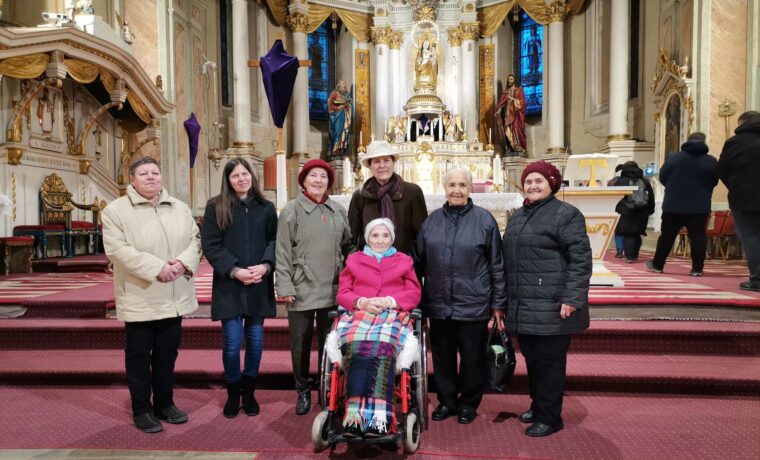On March 25, 2024, by the grace of God, the Lay Camillian Family “San Camillo” of Csíkszereda celebrates 30 years. It is a vocation that fills life, with roots that perhaps date back to times preceding our birth, which provided its foundations.
I first heard about the LCF in September 1992 in Budapest when my Mother-Éva (now a blessed memory) spoke about it during a private retreat at Mária Herpy’s house (who was then the administrator of the Budapest Rock church). Then, there was silence for a year.
On October 17, 1993, I was able to attend the extraordinary Mass celebrated by the Camillian father Dr. Anton Gots in Budapest, discerning my vocation in life. The central theme of the sermon amazed me because it presented the unification of human suffering with the redemptive suffering of the Lord Jesus Christ. This is what the Father called “holiness”, if one lives suffering as “holiness” with the Lord Jesus Christ. I was astonished to discover that I was a “living sacrament” because of the sufferings I had experienced through my illnesses.
I fell in love with St. Camillus. My life had meaning. An era had ended, and a new broad path full of promises and opportunities opened before me, into which I entered with confidence. At the end of the Holy Mass, I received important news: the leadership of the Camillian Order had decided, upon the recommendation of my mother-Éva, to send me to Rome to continue my studies. I was thrilled with this proposal, which I dared not speak about to my family at home. Shortly after, I was asked to organize a meeting for Father Gots in Csíkszereda.
The first Camillian meeting took place in mid-March 1994. The mayor at the time, Csaba Csedő (former director of the hospital), provided us with the banquet hall of the Municipality for three days. 137 participants were invited from twenty locations in our Harghita Province, personal acquaintances. On that occasion, we also invited the future Father Alfréd György. It was a fantastic meeting.
A week later, on March 25, 1994, the first Camillian gathering was held, again in a room of the Municipality, now among us, without a shepherd, and as a family. We took the name of “San Camillo” and began the journey of spirituality, with as many as we had, but from the beginning, we operated on two levels, Camillian spirituality and charity. We never had a Camillian spiritual assistant.
Under the patronage of Dr. Csaba Csedő, we organized visits to patients at the County Hospital and to homebound patients in the parish area, whom we visited together.
Between 1994-97, I completed the first part of my studies in Rome, after which I stayed at home for a year to prepare the official license of the LCF in our diocese.
In 1997, the consecration of our LCF took place in the parish of Saint Augustine through Father Pénzes József, the parish priest. From December onwards, the monthly Message of the LCF of Csíkszereda was launched, in Hungarian and Italian, the only Camillian spiritual bulletin in Eastern Europe. In this year, we began the spiritual exercises of lay Camillians, initially together with the disabled.
In 2000, I completed my studies at the Camillianum (and Theresianum) in Rome, and before the end of the year, with the support of dignitaries of the Hungarian Catholic Church, we started for the first time in Csíkszereda the spiritual care of hospital patients, which lasted for me for 16 years until my retirement. During this period, the hospital became our meeting point for many occasions of celebration, prayer, Mass, spiritual exercises, Catholic festivals, etc.
In the meantime, seven volumes of books for lay Camillians and the sick have been published, two more are forthcoming – one has been awaiting publication for three years, and another is in preparation.
In these thirty years, we have lost many of us, new ones have arrived, and those who remain have a great debt of gratitude to Almighty God for these thirty years of grace, even if He has given each of us smiles or tears, according to our ability to bear them, but it was worth it.
Maria Hajnalka Bakó














Camillians on Facebook
Camillians on Twitter
Camillians on Instagram